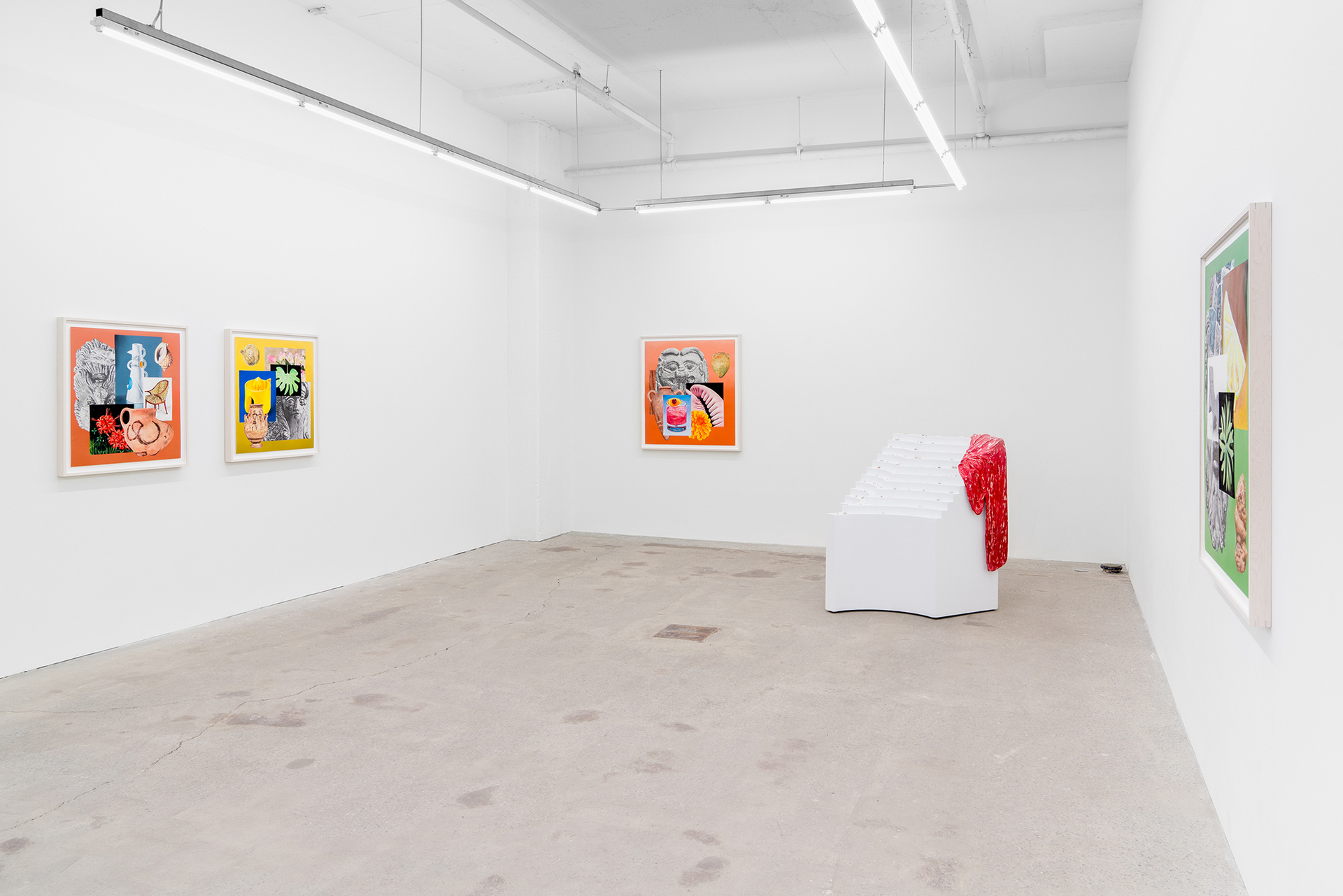Archive
2022
KubaParis
Je pensais justement à la machine qui imprime les mémoires.



















Location
Galerie Nicolas RobertDate
28.01 –04.03.2022Photography
Jean-Michel Seminaro and Mathieu GrenierSubheadline
Bouvier employs artistic means to propose an interpretation of the idea of anachronism.Text
Galerie Nicolas Robert is proud to present Je pensais justement à la machine qui imprime les mémoires, an exhibition by Louis Bouvier bringing together a selection of works from his past two years of research. Bouvier employs artistic means to propose an interpretation of the idea of anachronism. He uses montage to multiply the visual strata, establishing a horizontal reading of art history and its canons. References in the exhibition, combining different eras and following no precise system, are freed from the tyranny of linear history, creating a multidimensional vision unmoored from a supposed modern heritage.
His photo-realistic drawings and hybrid sculptures aim to transform conventional temporal periodization by deploying a personal vision of history and archeology in the gallery space. The exhibition combines a multitude of media and techniques: stone, bronze, casting, wood, plaster, direct carving, watercolour, lead, graphite, oil, wood pencils—a proliferation conducive to the creation of new points of contact that, given the chance, can reconfigure one’s “memory machine” with the imprint of a new constellation of links.
Bouvier’s visual assemblages show that anachronism reactualizes the works of other eras, not just as legacies of the past, but also as full-blown constituents of current discourse. These works propose a reflection on time and history and demonstrate the nonlinearity of past and present. The different temporalities create a new present in the exhibition space, one that doesn’t flatten time, but multiplies it, liberating it from its single dimensionality.
Today, as heirs to the philosophy of the Enlightenment, we have a natural inclination to use rationalism and “reason” to organize reality. With an absolutist scientific mind, the West has mapped, classified, catalogued, and ordered its surroundings in order to understand it. Nothing must be left to chance, everything must be organized to follow a supreme logic, for the sake of clarity in modern thought. This approach imposes a simplified vision of the apprehension of reality by establishing an absolute order, brushing aside various broad categories to favour silos of knowledge that know nothing of each other. These closed, reductive systems diminish the hybridization, creolization, and articulation of creative connections that can develop through intermixture, juxtaposition, anachronism. By introducing an oblique “de-modernizing” axis into the exhibition, Bouvier reflects on the role that certain Western structures of classification can play in our perception of the world.
Louis Bouvier